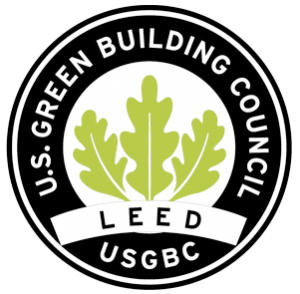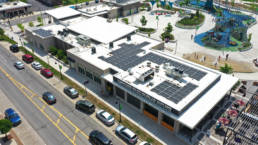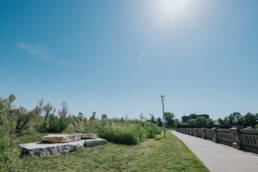 Howard Park proudly attained LEED v4 Gold. But what does that mean? Buildings have a substantial impact on the health and well-being of people and the planet. Buildings use resources, generate waste and are costly to maintain and operate. Green building is the practice of designing, constructing and operating buildings to maximize occupant health and productivity, use fewer resources, reduce waste and negative environmental impacts, and decrease life cycle costs.
Howard Park proudly attained LEED v4 Gold. But what does that mean? Buildings have a substantial impact on the health and well-being of people and the planet. Buildings use resources, generate waste and are costly to maintain and operate. Green building is the practice of designing, constructing and operating buildings to maximize occupant health and productivity, use fewer resources, reduce waste and negative environmental impacts, and decrease life cycle costs.
LEED (Leadership in Energy and Environmental Design) is the most widely used green building rating system in the world. Available for virtually all building project types, from new construction to interior fit-outs and operation & maintenance, LEED provides a framework that project teams can apply to create healthy, highly efficient, and cost-saving green buildings. LEED certification is a globally recognized symbol of sustainability achievement. From sustainable and local materials to high efficient technology, Howard Park is designed to be sustainable and overall less expensive to operate.
Solar at Howard Park Event Center
The new solar panels at Howard Park are now actively generating clean energy! This project was a collaboration with Venues Parks & Arts, Inovateus Solar, and the City of South Bend Office of Sustainability. The solar panels generate enough power over two days to power the average home for a month! These panels are just one of the many sustainability practices implemented at Howard Park as part of the LEED Gold Certification.


Bioswales
In centuries past, the area that is now Howard Park was part of an extensive floodplain that flanked the St. Joseph River. These floodplains were abundant with life, and they provided the ecological function of absorbing and retaining water from heavy rains. As St. Joseph County was developed, most of the floodplains, like Howard Park, were filled in and destroyed, thus rendering the areas near the river more vulnerable to flooding.
Bioswales are engineered depressions in the ground with sloped sides, which are designed to collect, retain, and filter stormwater. The bioswales at Howard Park are intended to help collect water from surfaces like sidewalks and parking lots while also providing flood protection to the park and surrounding areas. Contained within the bioswales are deep-rooted plants that are all native to St. Joseph County. In addition to aiding with the management of stormwater, these native plants are providing other ecological services. Some supply nectar for insect pollinators. All of them are larval food sources for various native insects, and their seed provides food for birds in the fall and winter when other food is scarce. As a bonus, they are also a beautiful part of the natural heritage of South Bend!
The Howard Park bioswales provide year-round interest, and the flora and fauna change with each passing week, so be sure to stop back frequently throughout the year.

